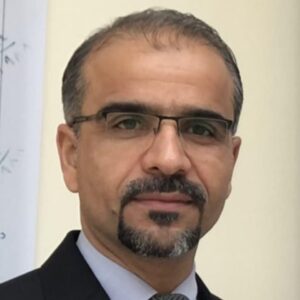By Saman Salih Faraj
It is anticipated that on November 20, 2024, the Iraqi government will conduct a nationwide general census, including the Kurdistan Region. The census is a crucial tool for governments aimed at ensuring the equitable distribution of resources and planning for the future to serve all segments and components of society.
Since the establishment of the Iraqi state by the British, the first general census was conducted. However, the census process has historically been manipulated and skewed. In 1920, despite the attempts, a genuine population census was never conducted until Kurdistan was annexed to Iraq.
Iraq is among those countries whose public policies are dubious and questionable, as from the very inception of the state, successive governments have manipulated information and statistics through incorrect applications. For instance, the fraudulent referendum conducted under the supervision of an international commission in 1925 to annex the Mosul Province ( southern Kurdistan) to Iraq.
In the global context, chauvinistic, racist, religious, and ideologically oppressive and undemocratic governments exploit their general authorities to serve political, undemocratic, and sectarian objectives. In this context, the Iraqi government has undertaken several undemocratic and oppressive measures. For example, in the process of Arabization of Kurdish regions in the governorates of Nineveh, Kirkuk, Erbil, Diyala, Kut, Salahaddin, and other areas, if we believe in the population census records, which the Iraqi government conducts every 10 years, we will see that in the areas where Iraq intends to alter the demographics, the Kurdish population has consistently been reduced. Ultimately, this oppressive and undemocratic policy, conducted through public policy and authorities, has become a de facto situation, where even today the Kurdish nation is paying the price, and half of the land of Kurdistan Region has been subjected to the threat of identity erasure, demographic changes, occupation, and the displacement of its original inhabitants.
The 2024 census, being conducted under the banner of “Census for Development,” clearly indicates that the government will use the census results for the purpose of establishing public policy, making decisions, strategic planning, allocating national resources, and implementing future steps. As stated in the government’s announcement, the aim of this census is not to implement Article 140 of the Constitution concerning disputed areas (those referred to as areas of contention), but rather for development purposes.
If we consider the current situation of Kurds in Iraq, the implementation of a general population census, where the Iraqi government has removed the “ethnicity” box from the census, might lead to the prediction that, after the announcement of the census results, the disappearance of Kurdish identity and the Kurdish cause in Iraq will be justified under the guise of development for the following reasons:
1. The census does not contain any significant reference or adherence to federal principles.
2. The census focuses on the principle of development, which is a conservative policy, rather than on historical, ethnic, or rectification of injustices against the Kurdish nation.
3. The implementation of a census for development overlooks the fundamental process of normalization in Kurdish areas, and any results of the census will become a de facto reality, making it extremely dangerous for Kurds in Iraq.
4. The allocation of national resources based on the census results will negatively impact the areas most affected (which are predominantly Kurdish areas in Iraq), and the annual budget allocated to these areas will be reduced.
5. The implementation of the 2024 general census takes place in a context where the normalization process has not been implemented, and where political stability, settlement, and historical accuracy are absent. This census, by ignoring information regarding ethnicity, could be a pretext for the abandonment of Article 140 and its intended purposes.
6. The inclusion of certain questions in the census form makes it clear that the income of the Kurdistan Region will decrease after the results are released, due to the better level of basic services available in the Kurdistan Region compared to the rest of Iraq.
Given these observations, it is clear that the Iraqi government is diverting from federal principles through its developmental plans. For instance, of the 1,200 kilometers of “development roads,” none will pass through the Kurdistan Region, which can be interpreted as an attempt to suffocate the Kurdistan Region.
What we can further delve into is the political changes in Iraq, led by Prime Minister Mohammed Shia’ al-Sudani’s government, which emphasizes solving cyclical issues and downplaying historical matters. In this regard, both the United States and Europe, regional countries, and Iraq’s sectarian forces support Sudani, as they have become disillusioned with addressing historical issues and solving problems in a meaningful way. As a result, the Kurdish political parties remain silent and do not seem to object to conducting such a census.
The Sudani government has taken advantage of global issues like unemployment, poverty, environmental degradation, economic sanctions, migration, youth discontent, and addiction (which are global issues) and has forgotten about historical-political issues. This has led to a situation where the Kurdish issue in Iraq will once again be dealt with from scratch. After the census, no one will talk about where the victims of genocide are, where chemical attacks occurred, or where mass killings took place. Instead, the main questions will be: where are the job opportunities scarce? Where is the economy weak? Where is migration high? Several other questions of this nature will arise, at which point Kurdistan will have to compete with provinces like Thiqar, Babylon, Maysan, and Najaf, while the remains of our victims of genocide are still buried in those provinces.
I don’t understand how Kurds have agreed to include questions in the census form about vacuum cleaner, refrigerators, washing machines, mobile phones, WhatsApp, Viber, iPad, Facebook, laptop, boiler, air conditioner, bicycle, and other consumer goods, while the question of ethnicity is omitted? Is the Kurdish ethnicity equivalent to bicycles, refrigerators, and the internet, or is it about land, occupation, and the political oppression by the Iraqi state?

